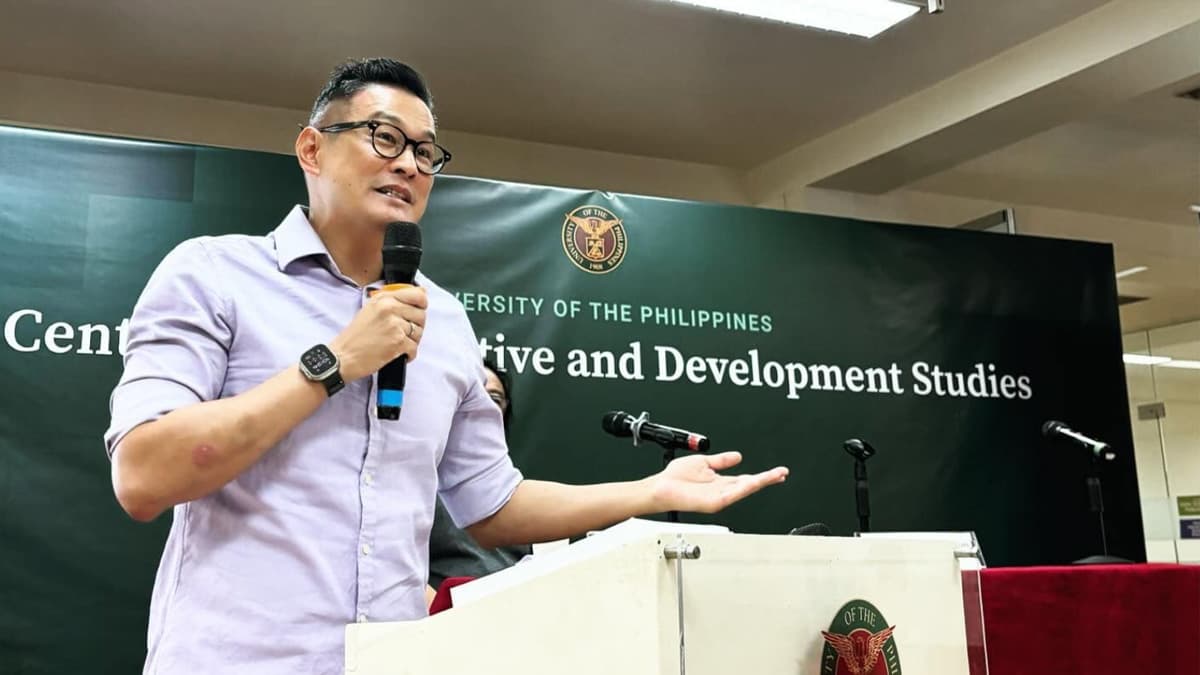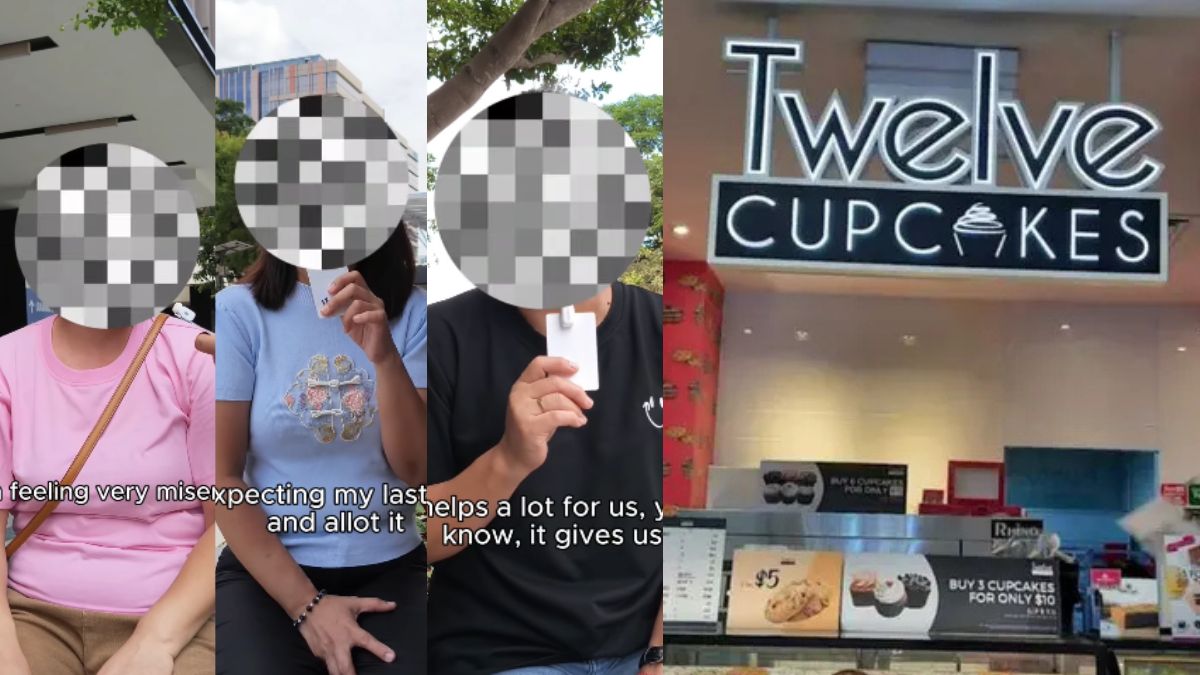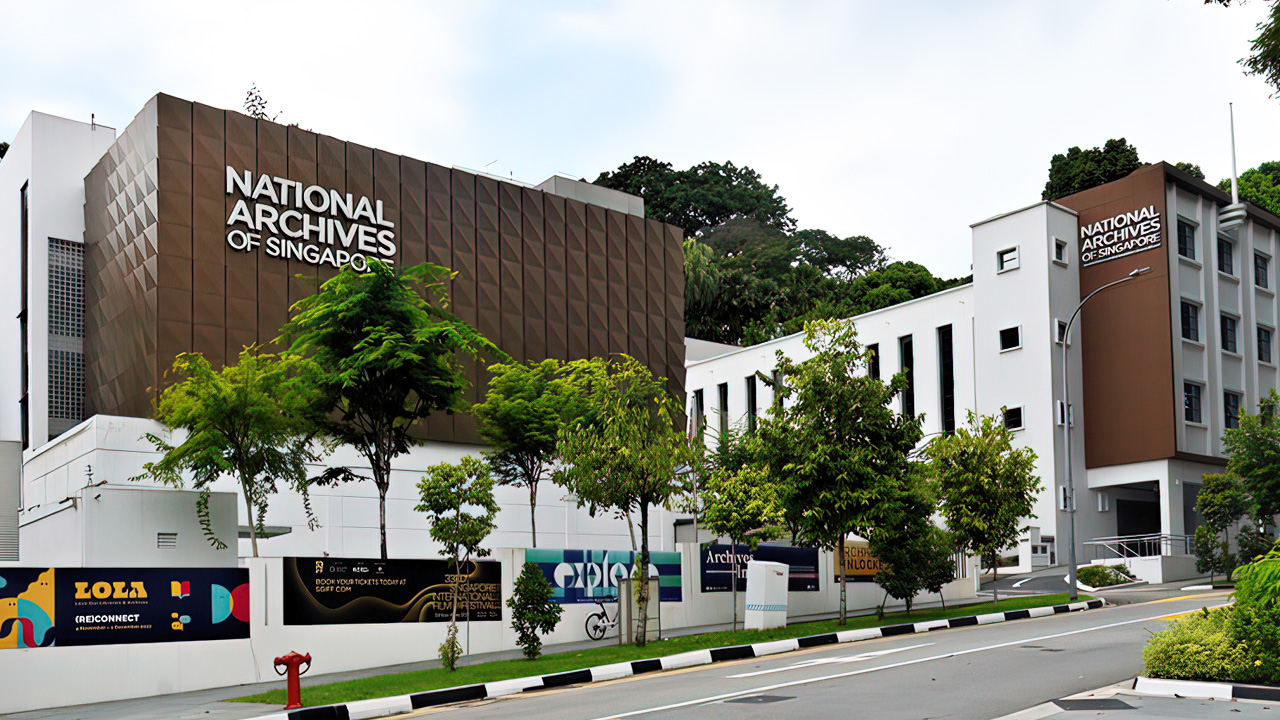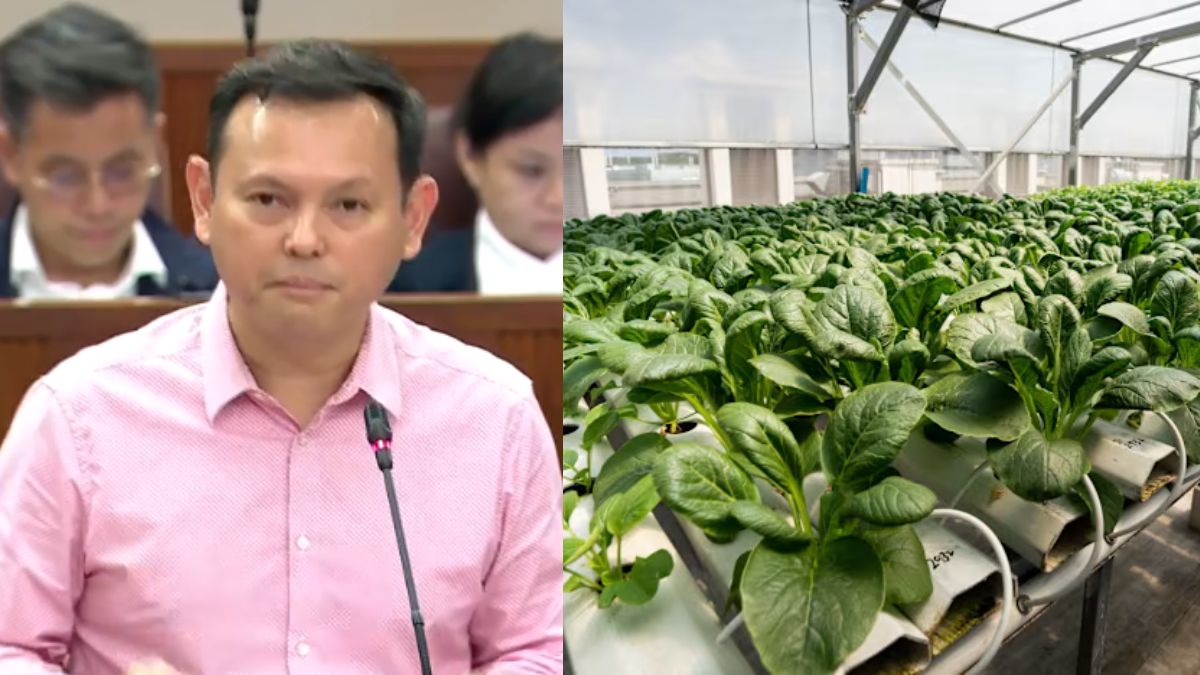Thum Ping Tjin's fight for truth: from historian to activist across Southeast Asia
Historian and activist Thum Ping Tjin reveals how state narratives, historical contradictions, and political censorship shaped his journey from academia to advocacy. In an interview originally conducted by theSun Malaysia but never published, he shares his vision for a freer Southeast Asia.

- Thum Ping Tjin transitioned from academic historian to vocal advocate for historical truth and democratic participation after being blacklisted in Singapore.
- He critiques the dominant postcolonial narratives in Southeast Asia that conflate nationalism with anti-communism and suppress multiracial, egalitarian aspirations.
- Through New Naratif, Thum seeks to empower civic participation by amplifying marginalised voices, despite state repression, financial difficulties, and linguistic diversity in the region.
In a revealing and comprehensive interview originally commissioned by The Sun newspaper in Malaysia—but later withheld from publication due to what the publication described as "sensitive areas"—Singaporean historian and activist Dr Thum Ping Tjin laid bare the ideological battles that continue to shape Southeast Asia.
Now published independently on social media, the interview offers rare insight into how one man’s quest for historical truth led to state blacklisting, forced academic exile, and ultimately, the founding of New Naratif, a civic media platform committed to reshaping Southeast Asia’s democratic and historical discourse.
Early life and academic journey
Better known as PJ Thum, the Oxford-educated historian began his journey with achievements few others could match: an Olympic swimmer for Singapore, Rhodes Scholar, and a double graduate of Harvard and Oxford.
Yet, despite these credentials, or perhaps because of them, Thum found himself increasingly at odds with Singapore’s official narratives on history and nationhood.
His academic pivot came while teaching history in a Singapore secondary school, when a student questioned the erratic portrayal of communists in the state-sanctioned syllabus. “Why can’t the communists make up their minds?” the student asked. The inability to provide a coherent answer triggered a deeper investigation.
“I realised just how contradictory the official historical narrative is,” Thum said. “It effectively blamed everything on communist conspiracy, even when there is no evidence or the argument contradicts itself.” This dissonance led him to focus his doctoral research on Singapore’s decolonisation process, eventually uncovering that the deeper political conflict was not about communism, but nationalism—and who had the right to define it.
As he examined the power struggles of the 1950s and 60s, Thum concluded that dominant forces in Singapore and Malaysia—namely the British, the UMNO-led Alliance, and the People’s Action Party (PAP)—had deliberately constructed a “mythical communist anti-national bogeyman” to delegitimise opposition and justify repression.
“This is not to excuse the MCP [Malayan Communist Party],” he clarified. “But the war crimes and human rights abuses committed by the British, Alliance, and PAP governments far outweigh the crimes of the MCP.”
Rediscovering the forgotten Left
Thum contends that this framing continues to obscure the aspirations of the Malayan Left, who championed a multiracial, egalitarian society. He cites overlooked figures such as Lim Chin Siong, Ahmad Boestamam, and Burhanuddin Al-Helmy as key players in a suppressed narrative of independence that emphasised equality, socialism, and democratic participation.
The question of national identity, Thum argues, lies at the heart of Southeast Asia’s unresolved tensions.
“Is Malaya a Malay country, or a multiracial country? Does decolonisation mean just the transfer of political power, or does it require decolonising society itself?” The conflicts over race, class, language, and the nature of self-determination, he believes, are legacies of this unresolved period—and they remain deeply embedded in today’s political struggles.
Blacklisted for dissent
Upon returning to Singapore in 2012, Thum joined the Asia Research Institute at the National University of Singapore (NUS).
However, his work—though academically rigorous—was politically inconvenient. By 2014, he was quietly informed that he had been blacklisted.
“No university in Singapore would hire me,” he recalled. “If the PAP government had not come after me first, I would have been happy just quietly doing my research.”
Unable to secure academic employment at home, he returned to Oxford. But the blacklisting marked a turning point, transforming him from historian to public advocate. The experience also reinforced a lesson from his Oxford mentors: that there was no divide between scholarship and real-world impact.
“A scholar fights for truth,” Thum insists. “Why should it be surprising that a historian advocates for reforms to public policies that promote better understanding of the past?”
Founding New Naratif
In 2017, Thum co-founded New Naratif with a vision to “democratise democracy.” Unlike many civil society organisations focused on institutional reform, New Naratif seeks to build the grassroots “demand” side of democracy—empowering people with the knowledge, space, and skills to participate meaningfully in civic life.
After the Singapore government rejected its registration in 2018—on the grounds that it had received foreign funding from the Open Society Foundations (OSF)—New Naratif was incorporated in the United Kingdom as a non-profit company. Thum has characterised the rejection as political obstruction rather than a legal decision. The platform has since positioned itself as a civic media organisation serving the broader Southeast Asian region.
The media landscape in Southeast Asia, dominated by elite perspectives and constrained by political control, leaves little room for marginalised voices.
New Naratif deliberately platforms stories that challenge narrow nationalist ideologies and colonial legacies. “We try to move beyond elite perspectives to create space and empower people to tell their own stories,” Thum explained.
State pressure and foreign interference allegations
But the project has faced intense pressure. The Singapore government not only publicly criticised the platform but also, Thum alleges, infiltrated it with a spy in 2021–2022 who leaked documents and destabilised the team. The hostile political environment was matched by severe financial strain.
Unlike commercial media, New Naratif has no major backers. “We are non-profit, there are no shares in the company, and we have no significant financial supporters with deep pockets,” Thum said. The organisation’s membership-based funding model, designed to make access inclusive and flexible, struggled during the COVID-19 pandemic and the subsequent cost of living crisis.
Adding to these challenges, New Naratif has been the target of sustained political attacks. The Singapore government has repeatedly portrayed the platform as a conduit for foreign interference, particularly under the rhetoric of the Foreign Interference (Countermeasures) Act (FICA).
During the second reading of FICA in Parliament on 4 October 2021, Minister for Home Affairs and Law K Shanmugam cited New Naratif’s 2018 receipt of a US$75,000 start-up grant from OSF, founded by George Soros, as a reason for rejecting its registration application.
Thum and his colleagues have never denied receiving the grant and have openly declared it on New Naratif’s website.
Instead, they highlight what they see as the hypocrisy of the government’s position—pointing out that the People’s Action Party (PAP) has itself historically benefited from foreign support, and continues to welcome foreign capital and partnerships when they align with state interests.
Thum argues that such accusations are part of a wider regional strategy whereby governments discredit civil society by framing it as externally manipulated, while obscuring their own foreign entanglements.
In 2020, Thum himself was the subject of a police investigation following a complaint by the Assistant Returning Officer during Singapore’s General Election. The complaint alleged that New Naratif had breached the Parliamentary Elections Act by publishing unauthorised paid advertisements on Facebook.
The Elections Department stated that the group had not obtained the required authorisation from any candidate or election agent. On 21 September, Thum was interviewed by police for over four hours, after which his phone and laptop were seized as part of the investigation.
In a video statement released after the interview, Thum described the incident as “an abuse of the law by the Prime Minister’s Office” and called on the government to end what he described as ongoing harassment of independent media and civic actors.
Funding challenges and regional solidarity
Reliance on grants has proved precarious, particularly after global funding declined during and after the Trump administration. “It’s been a constant struggle to stay afloat.”
Language barriers pose an additional challenge. Southeast Asia’s immense linguistic diversity often marginalises those who do not speak official or elite languages. Building solidarity across such divides has been difficult but remains central to New Naratif’s mission.
Despite this adversity, Thum remains hopeful. “Young people who are endlessly innovative about fighting for their future give me hope,” he said, referencing the creativity of his colleagues at New Naratif.
Though the civic space is shrinking across the region—marked by laws targeting dissent, heightened digital surveillance, and state-led disinformation—Thum notes that civil society is also adapting, especially in resistance movements in Myanmar, Thailand, and the Philippines.
He stresses that modern authoritarianism is more sophisticated than in the past, often cloaked in democratic language or enabled by global financial flows. “Governments use their superior financial muscle to crowd out genuine activists with pro-government or 'neutral' replacements,” he said.
On being a historian and activist
Asked about the tension between scholarship and activism, Thum rejected the binary. “No one is surprised when a doctor fights to save lives,” he said. “So why should anyone be surprised when a historian fights for historical truth?”
The lessons of history, he believes, must not only inform public policy but reshape our collective sense of morality and justice. One such lesson is the danger of exclusionary identity politics—whether racial, national, linguistic, or economic. “There are no groups, only human beings. Either we all deserve dignity and respect, or none of us do.”
This moral imperative extends to contemporary crises. The climate crisis, refugee displacement, global inequality, and ethnonationalism all, in his view, stem from ideologies of exclusion. “You cannot condemn discrimination elsewhere and then accept it at home in the name of the nation, citizenship, race, religion, language, gender, class, or any other identity.”
A historian’s wish and daily grounding
On a personal note, Thum reflects that if he could time travel to any moment in history, he would witness Lim Chin Siong’s iconic speech on 25 October 1956 at Beauty World—a moment that became the subject of political vilification.
Lim, a charismatic orator and co-founder of the Barisan Sosialis, was a prominent leftist leader in 1950s and 60s Singapore politics, widely regarded as one of the most influential figures in the anti-colonial movement. He was detained without trial in 1963 during Operation Coldstore, a mass arrest of political opponents led by the PAP government.
Though accused of inciting violence, Thum unearthed archival transcripts proving otherwise. “He had explicitly told the audience not to beat the police,” Thum said. “But how inspiring of a speaker was he? That’s the emotion I want to feel—the sense of being on the cusp of great historical change.”
Thum finds grounding in simple rituals—beginning each day by expressing love and appreciation to his wife, Sol Iglesias, a Filipino academic and activist whose own work inspires him.
“If my only contribution to this world is to support her work, it would be a life well lived.”
Although The Sun Malaysia ultimately chose not to publish this interview, citing concerns about its sensitive content, Thum’s responses stand as a powerful record of one historian’s mission to confront power with truth, and to build solidarity across borders in a region where civic space is increasingly under siege.








1 Comment